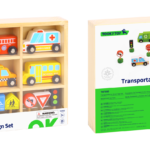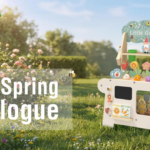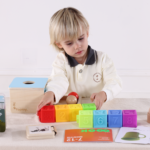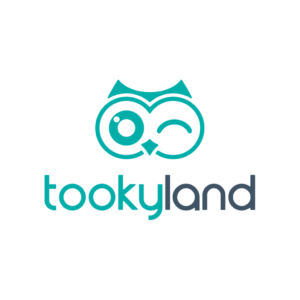Have you ever watched a toddler build a tower, knock it down, then try again—this time with a different base?
Congratulations, you just witnessed STEAM learning in action.
As a professional wooden toy supplier, we are always looking for toys that are not only fun but also meaningful for children around the world.
Let’s explore why wooden STEAM toys are quickly becoming the go-to choice for both families and forward-thinking businesses.
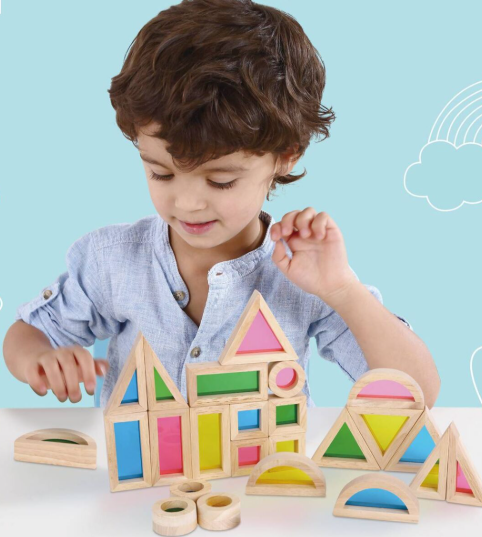
What is a STEAM Toy?
STEAM stands for Science, Technology, Engineering, Art, and Mathematics.
It’s not a trend—it’s a global shift in how we prepare kids for the future.
STEAM toys are designed to spark curiosity, build problem-solving skills, and foster creativity—all through play.
Let’s take a closer look at how each element of STEAM comes to life through wooden toys — and which types are ideal for curious young minds.

S is for Science
“Why does this fall?” “What happens if I turn this gear?”
Science is all about observation, prediction, and cause-and-effect learning.
Our wooden ball drop tracks, magnetic kits, or sorting boards let children explore gravity, motion, and cause-and-effect relationships—without even realizing they’re doing science.
Recommended toy:
A domino run is a perfect example. Kids explore gravity, motion, and kinetic energy, while refining problem-solving skills. These open-ended structures can be rebuilt in endless ways, teaching basic physics concepts through play.
Why it works: Children set up and topple dominoes to explore gravity, motion, and kinetic energy—without knowing they’re learning physics.
Learning outcome: Predicting outcomes, understanding cause-and-effect, and refining fine motor control.

T is for Technology
No screens. No batteries. Still tech?
Absolutely. Technology in STEAM isn’t just about electronics—it’s about tools, mechanisms, and innovation.
Recommended toy:
A activity cube allows children to experiment with interlocking parts, discovering how one movement affects the next. These simple mechanical toys introduce core principles of cause-and-effect and systems thinking in a tangible way.
Why it works: Kids twist and interlock gears to see how one movement influences the next, introducing mechanical logic.
Learning outcome: Systems thinking, sequencing, and the basics of machinery.
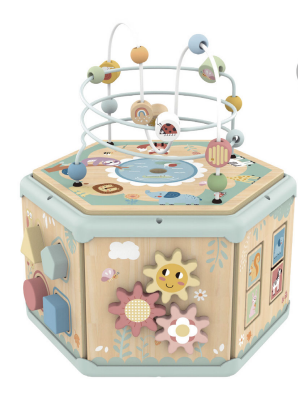
E is for Engineering
“How do I build this?” “Why did it fall?”
Whether it’s stacking blocks, connecting pieces, or creating marble runs, children engage in engineering every time they design, test, and rebuild.
Recommended toy:
Stacking blocks are a classic, versatile choice. Beyond building towers, children learn about weight distribution, balance, and spatial reasoning. As skills progress, toys like modular wooden marble runs offer more complex challenges, requiring strategic assembly to control direction and speed.
Why it works: Children design and rebuild intricate tracks, experimenting with angles and stability.
Learning outcome: Spatial reasoning, structural planning, and iterative problem-solving.

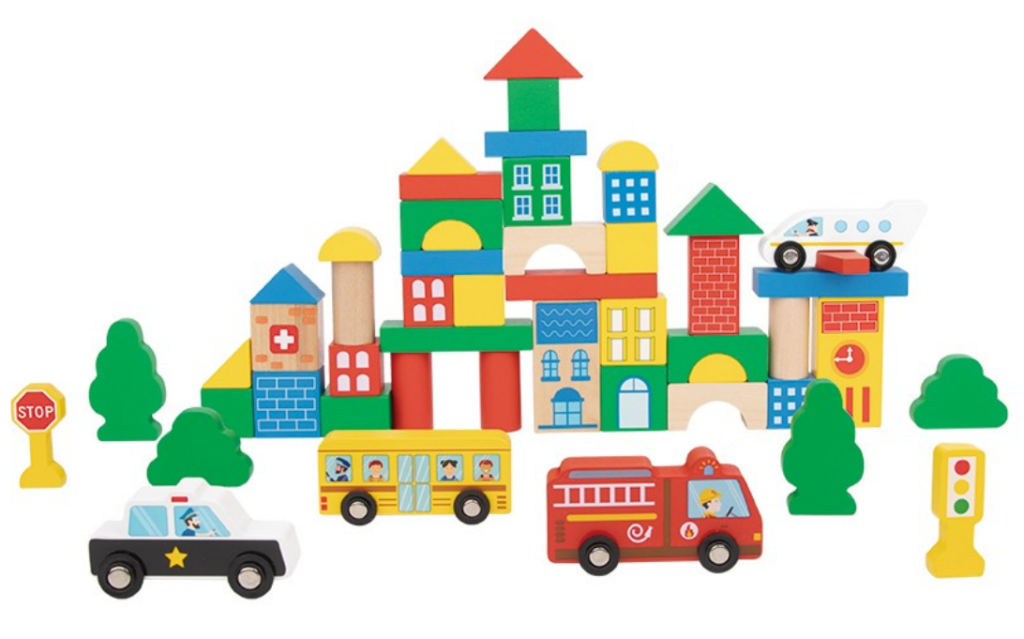
A is for Art
Art stimulates creativity, self-expression, and emotional intelligence. It’s not just about color — it’s about visual storytelling and imaginative thinking.
Recommended toy:
Wooden play kitchens or market stalls combine imaginative role-play with aesthetic design, allowing children to create scenes and stories while interacting with beautifully crafted objects.
Why it works: A miniature market allows children to stage scenes, decorate with color, and enact stories.
Learning outcome: Creative design, narrative skills, and emotional intelligence through role-play.

M is for Mathematics
“What comes next?” “How many blocks make a square?”
Math play starts early—and it’s fun when done right.
Recommended toy:
Counting bead frames or number puzzles help children visualize numbers, practice early arithmetic, and recognize quantity relationships in a playful, hands-on way.
Why it works: Sliding beads and solving number puzzles introduce quantity, patterns, and basic arithmetic.
Learning outcome: Number sense, sequencing, and problem-solving aligned with preschool curricula.

Why Wooden Makes STEAM Even Better?
Wooden toys are long-lasting, eco-friendly, and designed to grow with a child.
And when wooden construction meets STEAM thinking? You get toys that:
- Encourage longer attention spans
- Withstand years of use
- Appeal to both minimalist parents and Montessori educators
- .Fit beautifully in high-end retail shops and boutique stores

How to Choose Wooden STEAM Toys for Parents and Retailers
For Parents :
Safety first: Look for FSC-certified wood and EN71/ASTM compliance.
lAge-appropriate design: Select toys that match your child’s developmental stage—simple gear cubes for toddlers, modular marble runs for preschoolers, and counting frames for early elementary.
lLongevity and value: Choose well-crafted pieces that can grow with your child and withstand enthusiastic play.
For Retailers:
Market fit: Identify which STEAM categories resonate locally—science kits for schools, art stations for boutique gift shops, or engineering sets for specialty toy stores.
lSupplier partnership: Work with manufacturers who offer flexible minimums, co-branding opportunities, and reliable lead times.
lMerchandising appeal: Prioritize toys that photograph well, tell a compelling story, and align with seasonal buying patterns (back-to-school, holidays, etc.).

In Conclusion
Wooden STEAM toys bridge play and purposeful learning. Parents find safe, engaging ways to nurture curiosity at home, while retailers discover products that drive repeat visits and word-of-mouth recommendations. By choosing quality wooden toys grounded in STEAM principles, both families and businesses invest in a brighter future—one playful discovery at a time.


